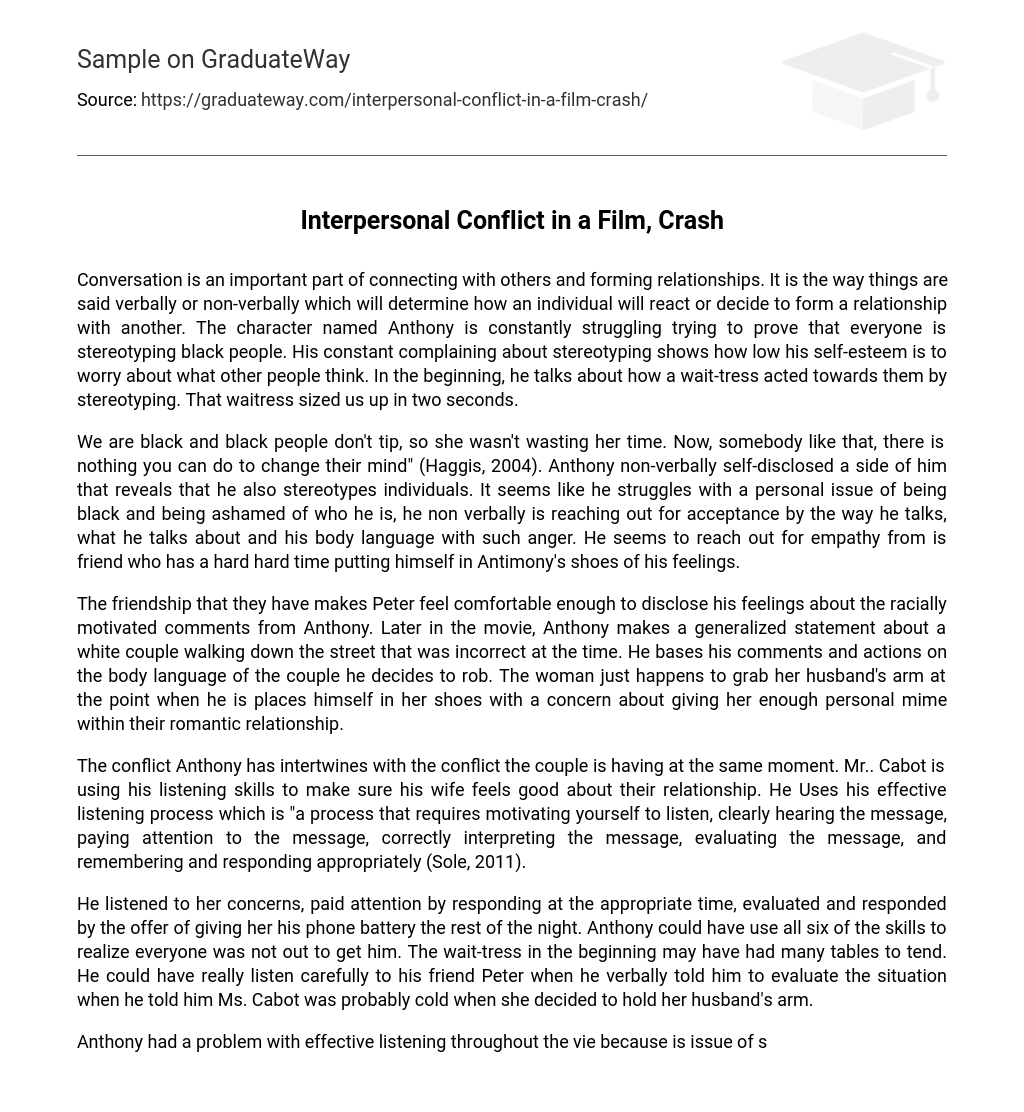The act of conversing is vital for establishing connections and cultivating relationships. Both spoken and nonverbal communication play a pivotal role in influencing people’s reactions and choices when it comes to forming relationships. Anthony, the main character, continuously encounters obstacles as he strives to challenge preconceived notions about black individuals. His persistent grievances regarding stereotyping indicate his lack of self-confidence and worry about others’ perceptions. In one instance, he recounts an incident where a waitress hastily assessed them based on stereotypes, stating, “That waitress evaluated us within moments.”
According to Haggis (2004), there is a belief that black people do not tip, so the woman was not wasting her time. This demonstrates Anthony’s adherence to stereotypes. It appears that he has internal conflicts about his own identity as a black person and feels ashamed of himself. He seeks acceptance through his manner of speech, topics of conversation, and angry body language. He also seems to seek empathy from his friend who struggles to understand Anthony’s emotions.
The strong bond between them allows Peter to confide in Anthony about the racially motivated remarks. As the story progresses, Anthony mistakenly assumes things about a white couple they encounter, relying on their body language to make judgments. Coincidentally, the woman grabs her husband’s arm just as Anthony empathizes with her need for personal space in their relationship.
Anthony’s conflict is connected to the conflict the couple is currently experiencing. Mr. Cabot is utilizing his listening skills to ensure his wife feels satisfied with their relationship. He employs an effective listening process that involves motivating himself to listen, fully hearing the message, paying attention, correctly interpreting the message, evaluating it, and remembering and responding appropriately (Sole, 2011).
Anthony actively listened and responded to her concerns, showing that he cared. He evaluated the situation and offered her his phone battery for the rest of the night. By using all six skills, he realized that not everyone was out to get him. The wait-tress may have been busy with other tables. It would have been beneficial for Anthony to truly listen to his friend Peter when he advised him to evaluate the situation with Ms. Cabot and her husband’s arm, suggesting that she may have been cold.
Throughout the film, Anthony struggled with effective listening due to his preoccupation with stereotyping. This resulted in him consistently making poor decisions as he failed to actively listen and observe his surroundings. Ultimately, he began to recognize the immorality of his actions and finally exhibited empathy, the ability to comprehend and relate to another person’s feelings (Sole, 2011), when he decided to set free the enslaved immigrants.





